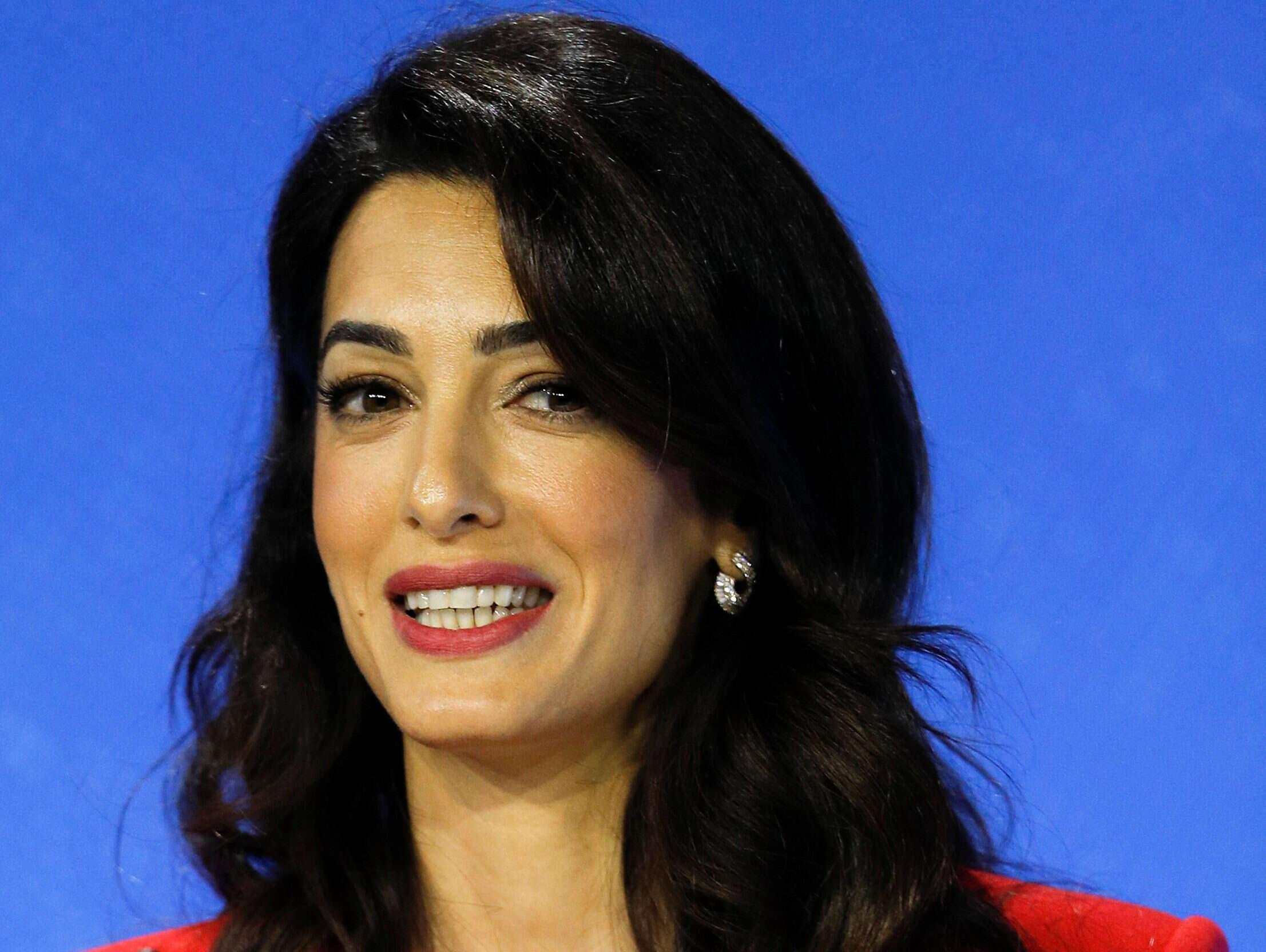
Amal Clooney has helped produce “model laws” which could guide states on free speech protections as she warned that laws in some countries are “being used every day to punish journalists for their work”.
Clooney is deputy chairman of a panel of legal experts established at a conference on defending media freedom held in the UK in July. The panel advises governments on how to better protect media freedom.
Human rights lawyer Clooney is the UK’s special envoy on media freedom.
Speaking at the United Nations General Assembly in New York yesterday she revealed that the panel had worked with academics to produce model laws that “must be respected under international law”.
She said: “Our research targets laws being used every day to punish journalists for their work such as criminal libel laws, vague or overbroad hate speech and ‘fake news’ laws; and laws that muzzle the media by imposing arbitrary conditions on ownership, accreditation and funding.
“Such laws are part of a rising drumbeat of legal assaults on journalists, and they are particularly open to abuse when senior officials vilify the media, creating a toxic environment in which individual journalists are vulnerable to attack.”
Britain’s human rights minister also spoke at the assembly, where he said the UK has a “moral imperative” to take action against countries that threaten media freedom.
Minister Lord Tariq Ahmad said 32 countries have now signed a global pledge to come together as the Media Freedom Coalition. It means the countries have committed to lobby on individual cases and wider abuses against the media both at home and abroad.
According to UNESCO, 43 journalists and media workers have been killed so far this year, while Reporters Without Borders reports 383 are currently imprisoned around the world.
Lord Ahmad said yesterday: “This tide of oppression against free media across the world harms the countries affected, and offends others against the values we hold so dear.
“So we all have a moral imperative to stop the threat to media freedom, whether it’s violence, unduly restrictive laws and regulations, imprisonment, detention or indeed internet censorship.”
The Government confirmed this week it would introduce a UK Magnitsky law, after Brexit, so it can impose sanctions on anyone who is responsible for human rights violations or abuses, including against journalists and whistleblowers.
Sanctions could include barring entry and freezing assets such as bank accounts.
Writing in the Sunday Telegraph, Foreign Secretary Dominic Raab said: “That will provide a layer of UK accountability against those who target journalists, whistle-blowers and human rights campaigners with impunity in their own countries.”
Lord Ahmad reiterated the plan yesterday, saying it is part of the UK’s responsibility to be a “good global citizen” and “hold abusers accountable, both legally and financially”.
Clooney said she was “encouraged” by the Magnitsky plan, saying: “Targeted human rights sanctions have rarely been used to protect individual journalists under threat.
“Neither the EU nor the UK imposed them in the wake of the chilling murder of Jamal Khashoggi.
“And even systems with developed so-called ‘Magnitsky’ regimes have been slow to apply them in situations involving the arbitrary detention of a journalist or systemic attacks on the media.
“So this is an important opportunity to lead with a new paradigm: that where the media is attacked, targeted sanctions will be a counter-attack.”
Picture: Reuters/Peter Nicholls
Email pged@pressgazette.co.uk to point out mistakes, provide story tips or send in a letter for publication on our "Letters Page" blog

